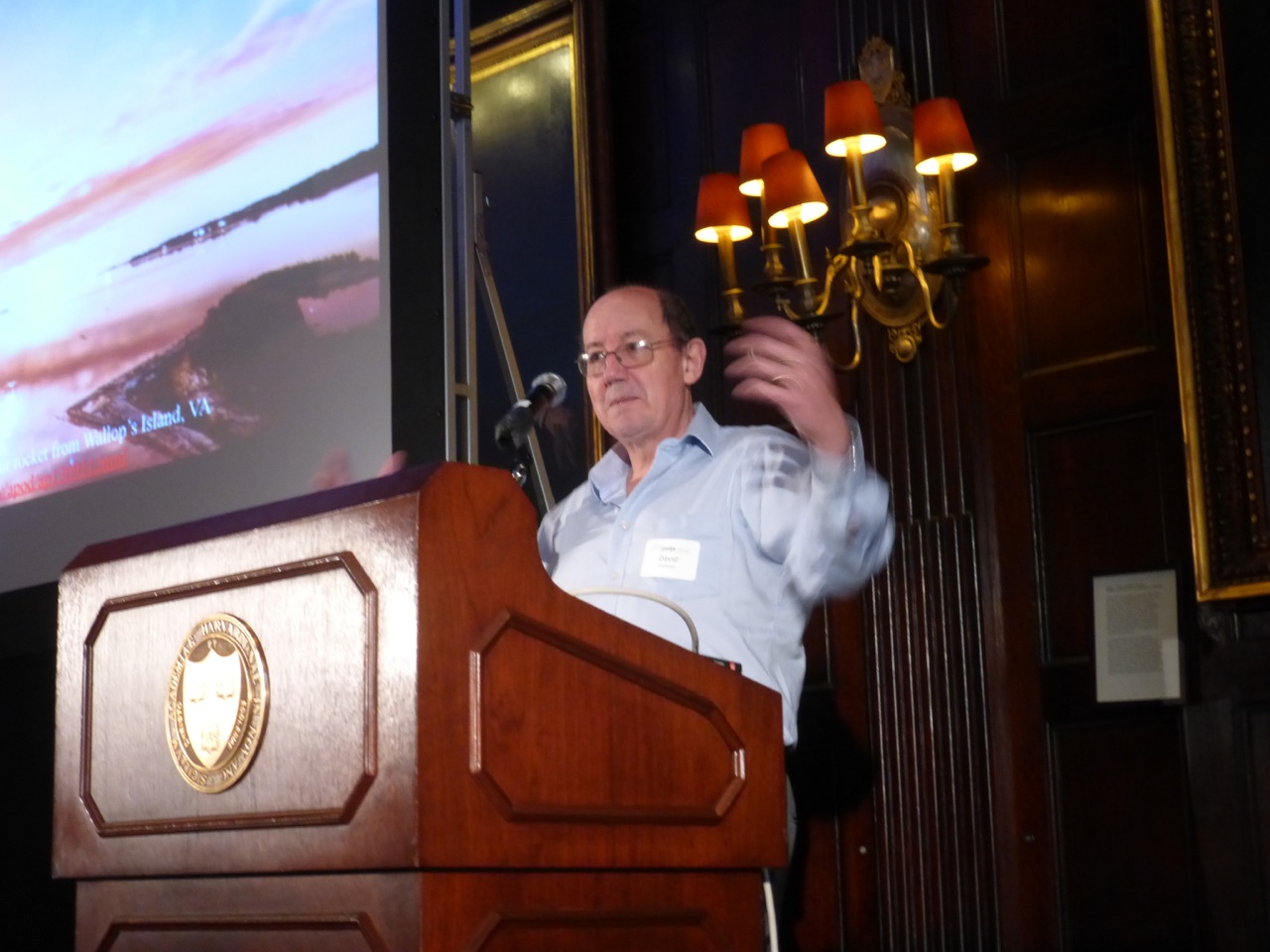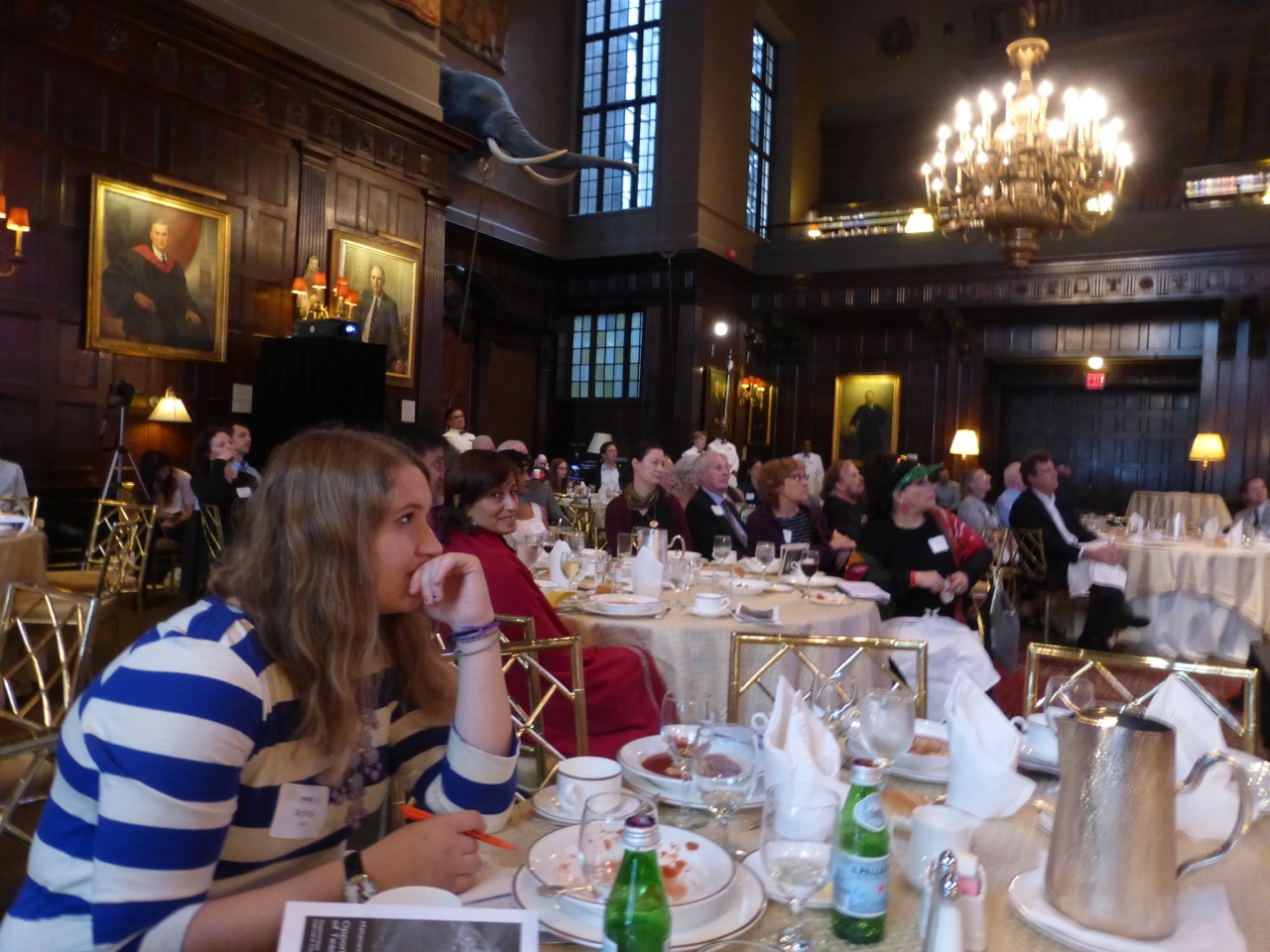Imagine a semester-long class that attempts to cover 13.8 billion years of the universe’s history, starting with the Big Bang and ending with the present.

As daunting as it may seem, a small band of scholars are encouraging a more holistic approach to history that focuses on the full breadth of our universe’s story, and not just on the past few centuries of human existence.
After designing an online pilot course called the Big History Project, David Christian, an Australian historian and author of two books on the emerging discipline, released last month the first high school textbook on Big History. Christian and two prominent academic advocates of the project – Bob Bain and William Grassie – spoke at the Harvard Club in Manhattan last week about their vision and challenges for the ambitious effort.
The Big History Project – funded by philanthropist Bill Gates – already boasts of a free and open online class of thousands of students, mostly adults, and assists high school teachers and university professors by providing guidance and materials. At the Dominican University of California, it’s already a required class for all first-year students.
While it’s unlikely to become a required class at the New School anytime soon, there’s some student demand.

“It provides a sort of map that connects 13.82 billion years of shared history through a scientific analysis,” said Claire Schonning, a senior in Lang’s education department who attended the Big History lecture at the Harvard Club. “One where the history of humans is a tiny fraction of the larger story and can be traced and connected to everything on a larger scale.”
By failing to meld sciences and the humanities into one narrative, the current educational system creates a feeling among students that the sciences and social sciences, only tenuously connected, teach random information, ungraspable and disconnected from their lives, members of the project said.
“American education is in pieces,” said Bob Bain, associate professor at the University of Michigan. “It is like getting children to put a 500 piece puzzle together without giving them the top.”
In Big History, all information – be it historical or scientific – works towards one grander narrative: how a simple universe became magnificently complex. The approach encourages students to consider that they are just one plot line in that story, Christian said.
“I increasingly think of Big History as an origin story, an attempt to understand how things came to be,” he said. “Knowing where you are helps you know what you are and modern education doesn’t do that.”
Humans only enter the curriculum halfway through the semester, since according to Big Historians, our species can only be understood in the context of a much larger shared history of the universe.
Lazar Puhalo, an archbishop of the Russian Orthodox Church, traveled from Ottawa for the event, and said that while he has long supported the Big History project, he is skeptical of some of its universalizing and moralistic claims. In some ways, Big History sees itself as a successor to religion, rooted wholly in modern science and historical truth; and with a small group of core spokespeople endorsing the same narrative, Puhalo worries of the direction the movement might take.
“You have to be very careful of it taking on an ideological complex,” he told the Free Press.
Christian acknowledged in a question-and-answer session after the event that there remains a lack of academic diversity within the movement.
“I hope all this takes off and we get other versions of the story,” he said.







Just want to say your article is as surprising. The
clearness to your put up is just spectacular and that i could assume you’re
knowledgeable in this subject. Well along with your permission allow
me to clutch your RSS feed to stay updated with impending post.
Thanks one million and please continue the enjoyable work.
We’re a group of volunteers and opening a new scheme
in our community. Your web site offered us with valuable info to work on. You
have done a formidable job and our whole community will be grateful to you.
Remarkable! Its genuinely amazing post, I have got much clear idea concerning
from this article.
I really like what you guys tend to be up too.
This kind of clever work and exposure! Keep up the superb works guys I’ve added you guys to blogroll.
Excellent post. I was checking continuously this
weblog and I am inspired! Very useful information particularly the final phase :
) I take care of such information much. I was seeking this
particular information for a very long time. Thanks and best of luck.